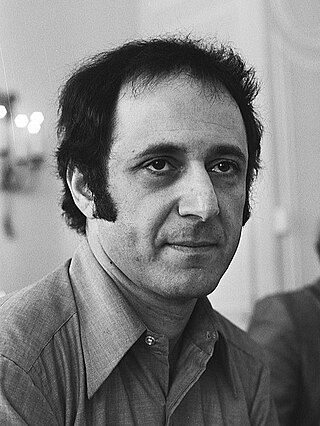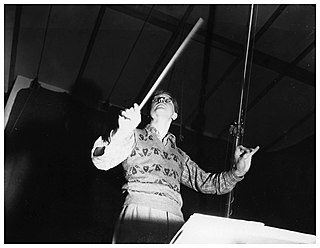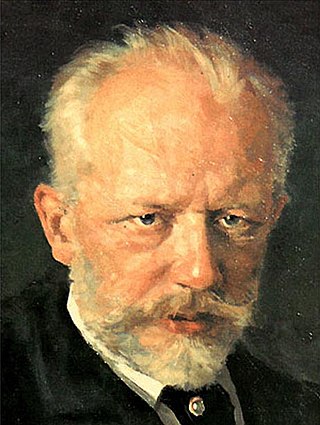Related Research Articles

Stephen Michael Reich is an American composer who is known for his contribution to the development of minimal music in the mid to late 1960s. Reich's work is marked by its use of repetitive figures, slow harmonic rhythm, and canons. Reich describes this concept in his essay, "Music as a Gradual Process", by stating, "I am interested in perceptible processes. I want to be able to hear the process happening throughout the sounding music." For example, his early works experiment with phase shifting, in which one or more repeated phrases plays slower or faster than the others, causing it to go "out of phase." This creates new musical patterns in a perceptible flow.
Paul Lansky is an American composer.

Dave Douglas is an American jazz trumpeter, composer, and educator. His career includes more than fifty recordings as a leader and more than 500 published compositions. His ensembles include the Dave Douglas Quintet; Sound Prints, a quintet co-led with saxophonist Joe Lovano; Uplift, a sextet with bassist Bill Laswell; Present Joys with pianist Uri Caine and Andrew Cyrille; High Risk, an electronic ensemble with Shigeto, Jonathan Aaron, and Ian Chang; and Engage, a sextet with Jeff Parker, Tomeka Reid, Anna Webber, Nick Dunston, and Kate Gentile.

Douglas Gordon Lilburn was a New Zealand composer.

John Stanley Body was a New Zealand composer, ethnomusicologist, photographer, teacher, and arts producer. As a composer, his work comprised concert music, music theatre, electronic music, music for film and dance, and audio-visual gallery installations. A deep and long-standing interest in the music of non-Western cultures – particularly South-East Asian – influenced much of his composing work, particularly his technique of transcribing field recordings. As an organiser of musical events and projects, Body had a significant impact on the promotion of Asian music in New Zealand, as well as the promotion of New Zealand music within the country and abroad.

The Seasons, Op. 37a, is a set of twelve short character pieces for solo piano by the Russian composer Pyotr Ilyich Tchaikovsky. Each piece is the characteristic of a different month of the year in Russia. The work is also sometimes heard in orchestral and other arrangements by other hands. Individual excerpts have always been popular – Troika (November) was a favourite encore of Sergei Rachmaninoff, and Barcarolle (June) was enormously popular and appeared in numerous arrangements.
The Drysdale Overture of 1937 is among the earliest works for orchestra by New Zealand composer Douglas Lilburn.
A Song of Islands is a tone poem written for orchestra by New Zealand composer Douglas Lilburn in 1946. The work is the last in a trilogy of pieces exploring the theme of New Zealand identity; it was preceded by the overture Aotearoa (1940) and Landfall in Unknown Seas (1942) for narrator and string orchestra.
Donald Oscar Banks was an Australian composer of concert, jazz, and commercial music.
The Symphony No. 3 of Douglas Lilburn was completed in 1961, in response to a sabbatical from Victoria University of Wellington. It was given its premiere the following year, and published by Faber Music around 1968.
Michael von Biel is a German composer, cellist, and graphic artist.

Ingvar Natanael Lidholm was a Swedish composer.

The composer Sergei Rachmaninoff produced a number of solo piano pieces that were either lost, unpublished, or not assigned an opus number. While often disregarded in the concert repertoire, they are nevertheless part of his oeuvre. Sixteen of these pieces are extant; all others are lost. Ten of these pieces were composed before he completed his Piano Concerto No. 1, his first opus, and the rest interspersed throughout his later life. In these casual works, he draws upon the influence of other composers, including Frédéric Chopin and Pyotr Tchaikovsky. The more substantial works, the Three Nocturnes and Four Pieces, are sets of well-thought out pieces that are his first attempts at cohesive structure among multiple pieces. Oriental Sketch and Prelude in D minor, two pieces he composed very late in his life, are short works that exemplify his style as a mature composer. Whether completed as a child or adult, these pieces cover a wide spectrum of forms while maintaining his characteristic Russian style.
Cinq études de bruits is a series of five musical compositions by Pierre Schaeffer. The five études were composed in 1948 and are the earliest pieces of musique concrète, a form of electroacoustic music first theorized by Schaeffer that utilizes recorded sounds as the primary compositional resource.
Carl Nielsen's Fantasy Pieces for Oboe and Piano, Opus 2, were composed shortly after the composer had taken up the post of second violinist in the Royal Danish Orchestra in 1889. The two pieces which make up the opus were first performed at the Royal Orchestra Soirée in Copenhagen on 16 March 1891. The oboist was Olivo Krause and the pianist Victor Bendix.

Gillian Margaret Bibby was a New Zealand composer, pianist, writer and teacher.
Wai-te-ata Music Press is a centre of Te Kōkī New Zealand School of Music, that publishes New Zealand sheet music, CDs and other music-related publications.

Nine Little Piano Pieces, Sz. 82, BB 90 is a collection of short pieces for piano by Hungarian composer Béla Bartók. It was completed in 1926.
The Philip Neill Memorial Prize is an annual prize administered by the University of Otago for excellence in original composition. The award is open to all past and present students of a university in New Zealand, except previous winners who are excluded for a period of five years.
References
- 1 2 Nielsen, Margaret (Summer 1995–1996). "The Piano Music of Douglas Lilburn: Reflections on my On-going Appreciation of a Unique Treasury of Music". Music in New Zealand (31).
- ↑ "Nine Short Pieces- Douglas Lilburn". SOUNZ. Retrieved 14 October 2010.
- 1 2 Dando, Ian; Sell, David (1979–1981). "Nine Short Pieces for Piano". Listening Guide.